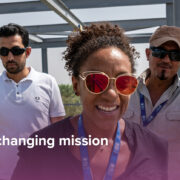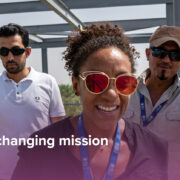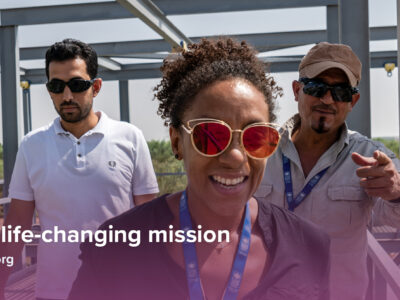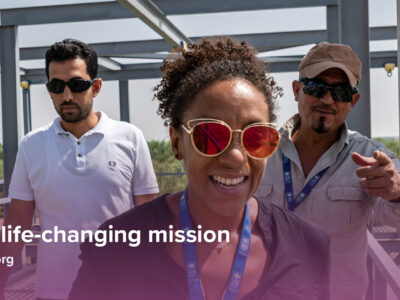UN Women, grounded in the vision of equality enshrined in the Charter of the United Nations, works for the elimination of discrimination against women and girls; the empowerment of women; and the achievement of equality between women and men as partners and beneficiaries of development, human rights, humanitarian action, and peace and security. UN Women has a universal mandate that encompasses a normative, an operational/programmatic as well as a coordination role, all of which are closely linked with its unique structure. At the core of its mandate, UN Women plays a leading role in supporting governments in delivering on their gender equality and empowerment of women (GEEW) commitments in the SDGs.
The United Nations Entity for Gender Equality and the Empowerment of Women (UN-Women) was established by General Assembly resolution 64/289 of 2 July 2010 on system-wide coherence, with the mandate to assist countries and the United Nations system itself to progress more effectively and efficiently toward the goal of achieving gender equality, women’s empowerment, and upholding women’s rights. UN Women, grounded in the vision of equality enshrined in the Charter of the United Nations, works for the elimination of discrimination against women and girls; the empowerment of women; and the achievement of equality between women and men as partners and beneficiaries of development, human rights, humanitarian action, and peace and security.
The Nigeria Maritime Sector comprises: A coastline of about 850 kilometers and an exclusive economic zone of 315,950 square kilometers. Navigable inland waterways of 3,000 kilometers. Six major seaports, eleven oil terminals, and 170 private jetties. 19 functional shipbuilding and ship repair yards. Five Inland Container Depots are under construction. Over 300 registered shipping companies and numerous shipping agents, chandlers, freight forwarders, Maritime Professional Bodies and Associations, and Government Maritime Regulatory Agencies.
The Maritime sector is richly endowed with vast natural resources such as extensive coastline, aquatic animals including fish, oil and gas deposits, bitumen, etc. it is very critical to the economic development and growth of Nigeria and is second only to the oil and gas sector in terms of foreign exchange earnings. Nigeria generates about 70% of the ship traffic, cargo, and value of trade in the West and Central African sub-region. Nature and economic factors have combined to create huge investment opportunities in the maritime sector of Nigeria. The natural opportunities include a population of over 180million which means a huge market; a land area of 923, 768 square kilometers, an extensive coastline of 850kilometres, navigable inland waterways measuring about 3,000 kilometers and large offshore oil and gas deposits which combine to provide opportunities in oil and gas shipment; deep sea trade and coastal trade.
The Nigerian Maritime sector plays a crucial role in the country’s economy, providing employment opportunities, contributing to the gross domestic product, and facilitating trade. However, the sector has faced various challenges, including gender-related issues that have hindered its growth and development. For example, women represent less than 2% of the total workforce in Nigeria’s maritime sector, with the sector being recognized as a historically male dominated sector . In recent years, there has been a growing recognition of the importance of gender equality and the role it plays in achieving sustainable development. Ensuring gender equality and promoting the rights of women and men, girls and boys, is essential to achieving the United Nations’ Sustainable Development Goals (SDGs). The need to address gender issues in the Nigerian Maritime sector has been highlighted in various national and international frameworks, including the National Gender Policy, the African Union’s Agenda 2063, and the International Maritime Organization’s (IMO) Global Plan of Action on Gender Mainstreaming in the Maritime Sector.
As part of its commitment to engendering legal and policy frameworks in Nigeria to advance gender equality and the empowerment of women, as enshrined in UN Women’s 5-year Strategic Note (2023 -2027) and the SDGs, UN Women Nigeria Country Office seeks to engage a national consultant to conduct a gender-responsive assessment of the maritime sector in Nigeria. The assessment will prioritize the identification of the challenges faced by women in the sector and recommend strategies for addressing these challenges while proffering action plans for mainstreaming gender in the sector. The objectives of the assessment will include:
- To identify the current status of gender equality in the Nigerian Maritime sector and the challenges faced by women and men in the sector.
- To identify the barriers and constraints that prevent women from accessing and participating in the sector, as well as the opportunities available for their empowerment and advancement.
- To examine the policies and practices that impact gender equality in the sector and recommend measures to address any identified gaps.
- To engage with key stakeholders in the sector, including the government, industry, and civil society organizations, to gather their perspectives and insights on gender issues in the sector.
- To develop a comprehensive report on the findings of the assessment and recommend strategies for addressing gender-related issues in the sector.
- To identify entry points for mainstreaming gender within the Sector











Comments